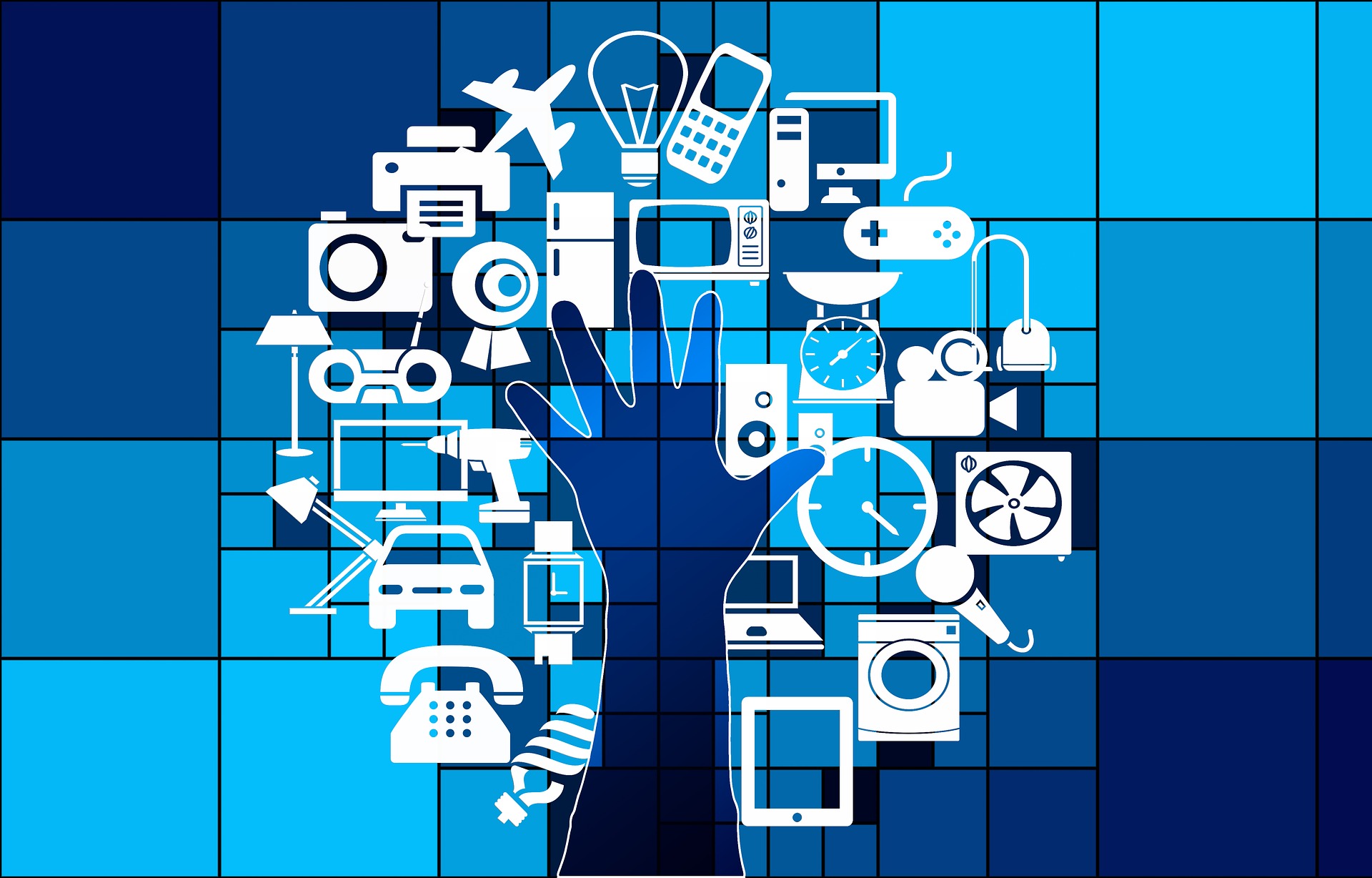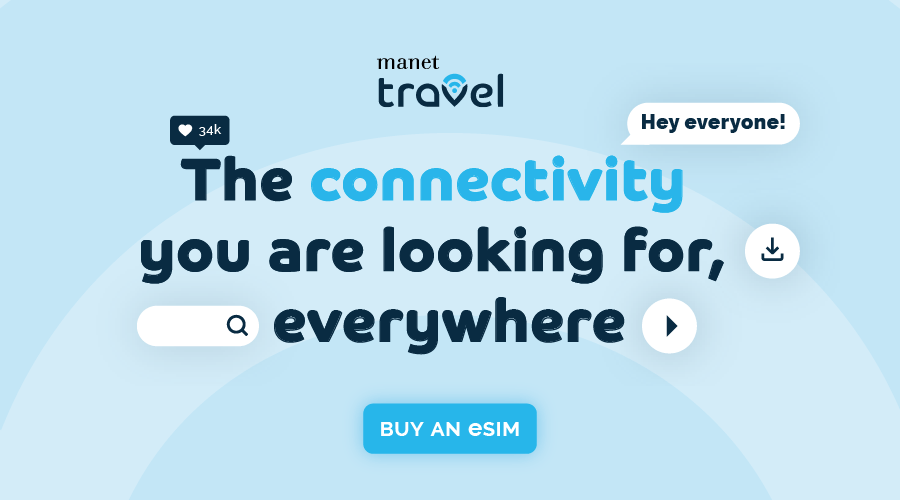In many ways, the connected network nature of the ‘Internet of Things’ is the perfect partner for hotel operations and the hospitality industry in general.
Hotels demand constant upkeep and attention so the more hoteliers, hotel managers and staff can empower customers to rely on technology — tech that automates repetitive and menial tasks that don’t necessarily call for human decision-making — the more they can free up time and resources to attend to more important aspects of the guest experience.
Over 58% of businesses have already adopted IoT. And, within the hospitality industry, the ‘smart’ hotel is becoming increasingly a commitment to the present, rather than a vision of the future.
Just ask Orchid Hotel in Mumbai, India. An unlikely candidate for the venture into ‘smart’ hotels, Orchid Hotel has nevertheless harnessed IoT technology to simply keep tabs on and track energy consumption, allowing the hotel to save on costs in an ongoing way.
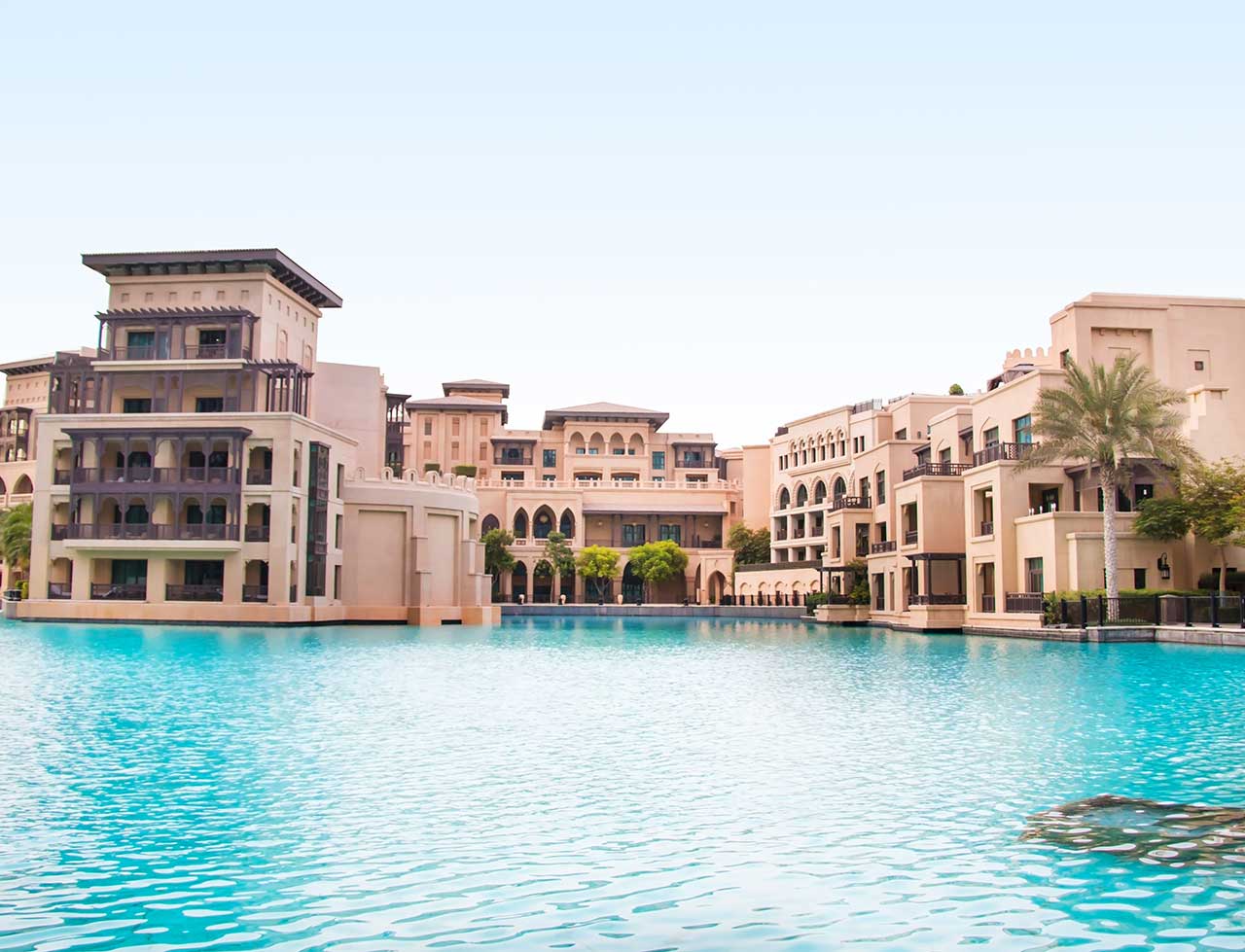 Photo by RKTKN on Unsplash
Photo by RKTKN on Unsplash
The continuous and real-time monitoring empowered Orchid Hotel’s managers to then take this data and appropriately schedule out power consumption based on peak occupancy and load times. In a country where power outages are frequent, especially in the monsoon season, this accurate data reporting and automated, remote operating capability is an absolute game changer.
‘IoT is not about connecting things or services but it is about changing the way things and services deliver value. In the process, things are becoming services, and services are becoming more intelligent’ — SmartSense
Indeed, herein lies the power of IoT: ‘Things are becoming services…and services are becoming more intelligent’.
And since the hospitality industry is all about serving guests, this seems a particularly beneficial partnership.
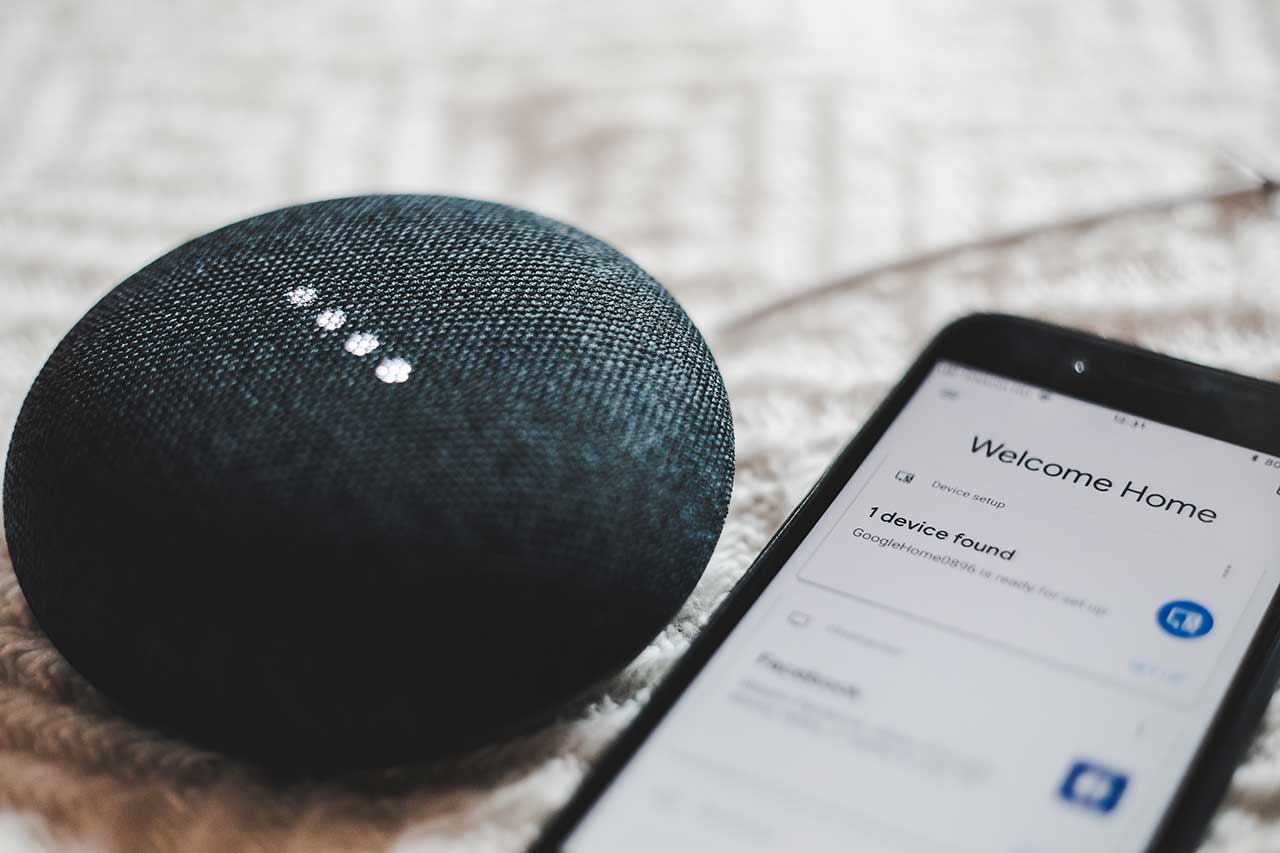 Photo by Bence ▲ Boros on Unsplash
Photo by Bence ▲ Boros on Unsplash
The transition on both the consumer side and the business side are not only positive but incredibly promising. Within the everyday consumer, IoT has already embedded itself as a daily practice.
- The number of homeowners living in ‘smart’ (read: connected) homes using automation is slated to rise from 12.5% in 2016 to 28% in 2021, reports Kagan
- This number matches with those who rely on personal digital assistants on their smartphones: 26% of voice assistant adopters rely on this technology to connect remotely to ‘things’ (Pew Research)
- In the UK, smart TVs, Internet-connected cameras, connected cars and fitness trackers were among the most popular
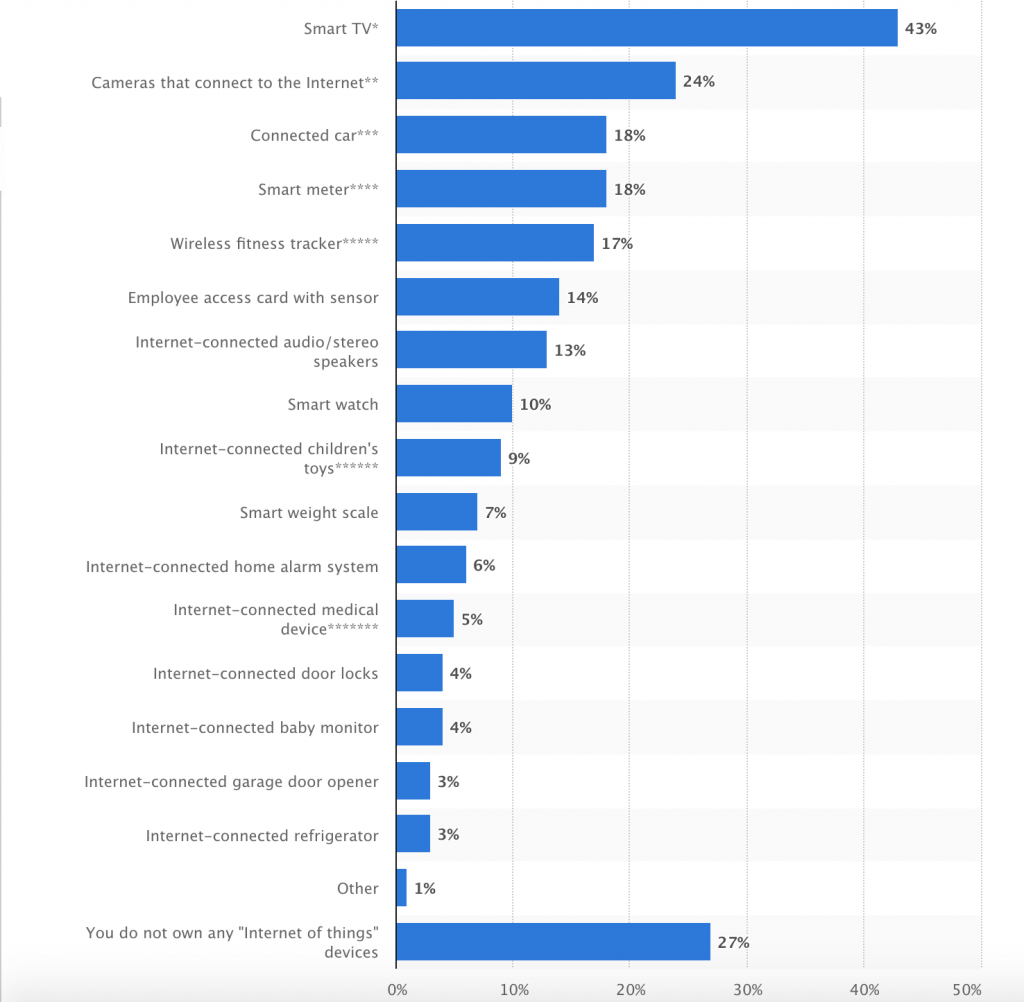 Source: Statista
Source: Statista
Why does this matter?
Because there is an expectation of IoT — and it’s an expectation that is increasingly permeating our social fabric, through the digital sphere.
The Internet of Things in the Hotel Industry
IoT has the chance to take back some of the market share from rental booking sites like Airbnb and HomeAway.
While the target markets for guest stays and experiences in a hotel versus those individuals who would like to stay more casually in someone’s home vary vastly — which is to say that there is room enough in the market for both — the fact of the matter is that IoT empowers guests.
And this is a technology that is only really available for use in the context of a hotel booking, which makes hotels that much more attractive to travellers. This is especially true as everyone moves over to more connected devices.
So how does the guest experience stand to gain? Let’s take a look at specific examples already in play within the hospitality industry.
‘In-stay’ technology
In-stay technology allows guests to experience the hotel’s services right at one’s fingertips. Interfacing with a range of interconnected apps, then hooked up to physical, tangible ‘things’ in the room, these workflows allows users — guests — to be in charge of their own experience within the room.
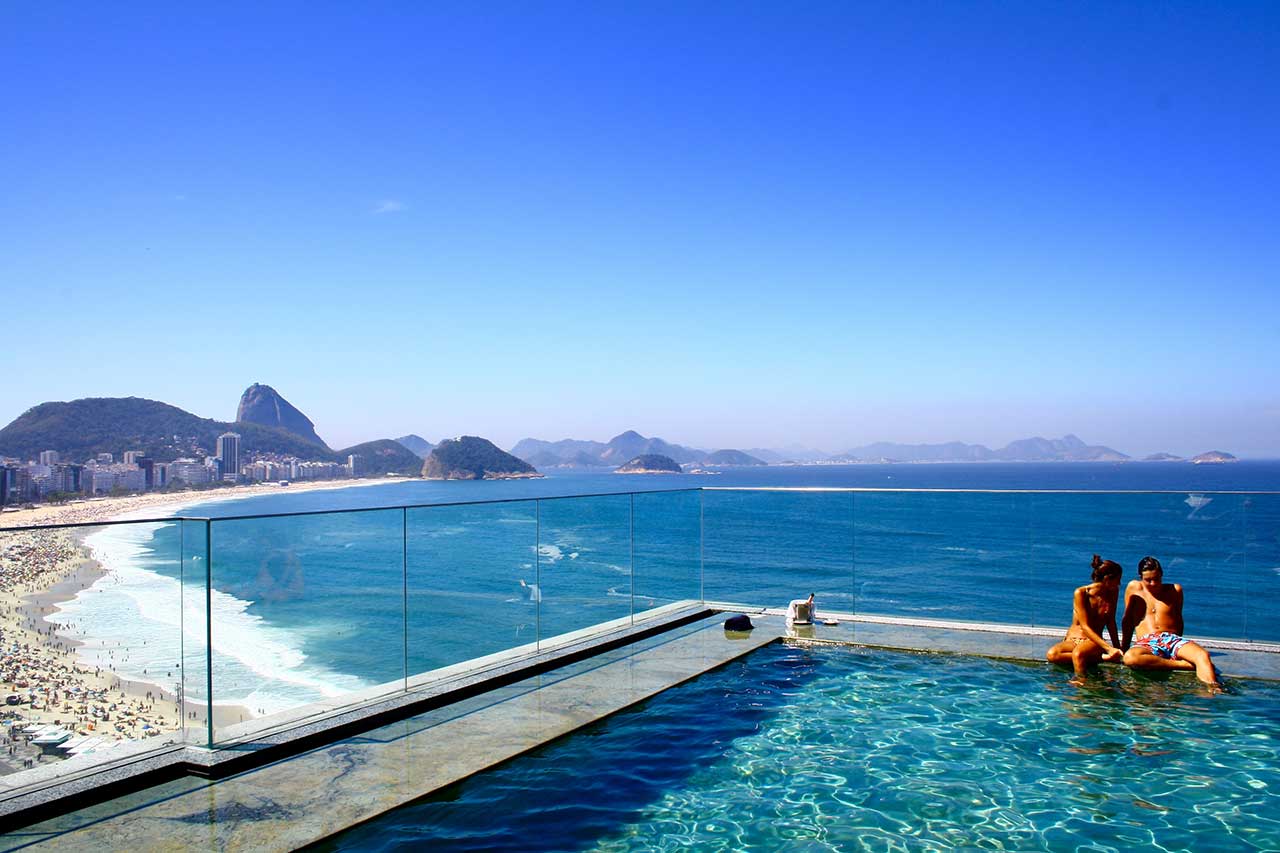 Photo by Nad Hemnani on Unsplash
Photo by Nad Hemnani on Unsplash
On the business side, the interconnectivity between a tablet and a room’s features like its curtains, lights, temperature and TV set or apps set to give guests information about their queries — this technology provides a massive up-sell and cross-sell opportunity.
Hotels can send push notifications about offers that would enhance a guest’s stay on these devices. Or else, in response to a query or command, chatbots and smart speakers can offer upgrades or complementary sells.
Voice-based guest room controls
As the leisure and luxury tourist capital of the world, it’s no wonder that hotels in Dubai are the first to begin strategic partnerships focused on offering ‘guests an experience more similar to what they’ve come to expect at home’.
The collaboration is a strategic one between Angie Hospitality, creator of interactive guest room assistant, ‘Angie’, and INTEREL, the provider of guest room management solutions. The integration between the two offers guests a seamless experience that relies on the Internet of Things infrastructure to control and interact with the room.
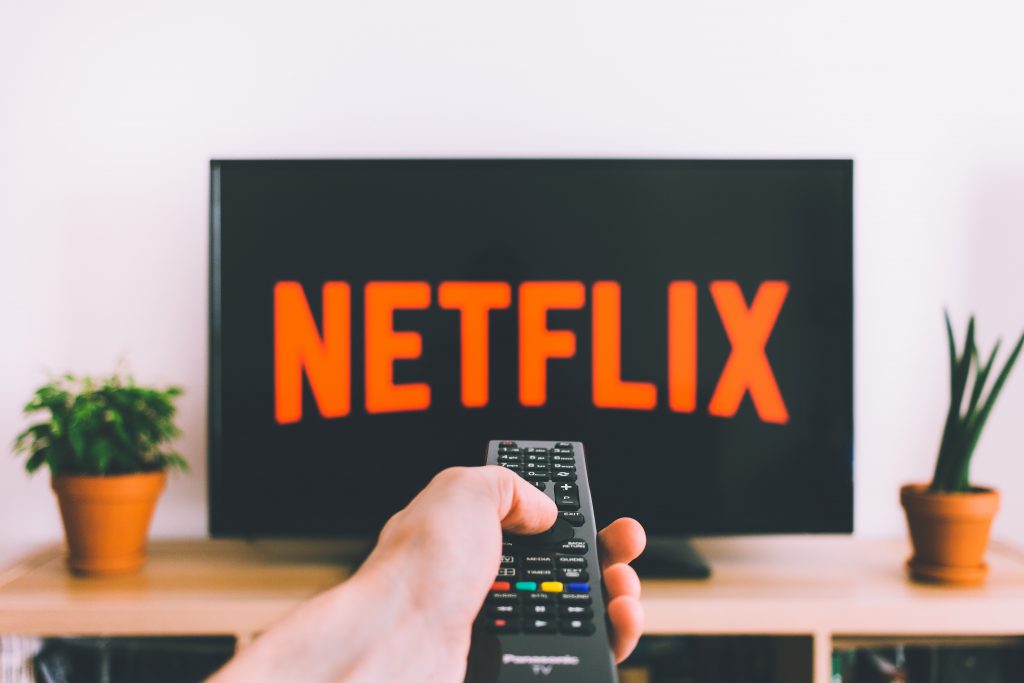 Photo by freestocks.org on Unsplash
Photo by freestocks.org on Unsplash
The best part? This one is truly made for travellers: Angie is multilingual.
‘With the advent of IoT, AI and voice technologies, the manner in which hotels communicate and interact with their guests is changing dramatically,” says Ted Helvey, the CEO of Angie Hospitality.
He adds, ‘Likewise, the way that guests manage their stay and customise the guest room environment is also evolving.’
Personalised delivery and anticipating a guest’s needs
It’s one small step for Marriott, one giant step for guest experience.
To tap into the all-powerful potential of IoT, Marriott worked with Legrand and Samsung in order to both test and provide a taste of an entirely IoT-enabled guest room.
Marriott senior vice president of global design strategies Karim Khalifa was inspired by the idea after visiting a conference featuring Legrand’s ‘Eliot’ program, an IoT network. It was all about translating the smart home experience into the hotel context.
But Khalifa was strategic. In order to pack in even more ROI (and not just novelty), he and his team began to work on introducing an initiative that would bring to life two different rooms based on three very specific traveller profiles.
The first was a yoga-centric coach, the second a long-term travel ‘nomad’ and the third, a family of four on holiday.
Very separate groups of people, very idiosyncratic needs, very specific room experiences.
To power up the room, Khalifa relied on Samsung’s cloud-based IoT, an enterprise-level platform that works not only on Samsung products but third-party devices.
Now that is both powerful and promising.
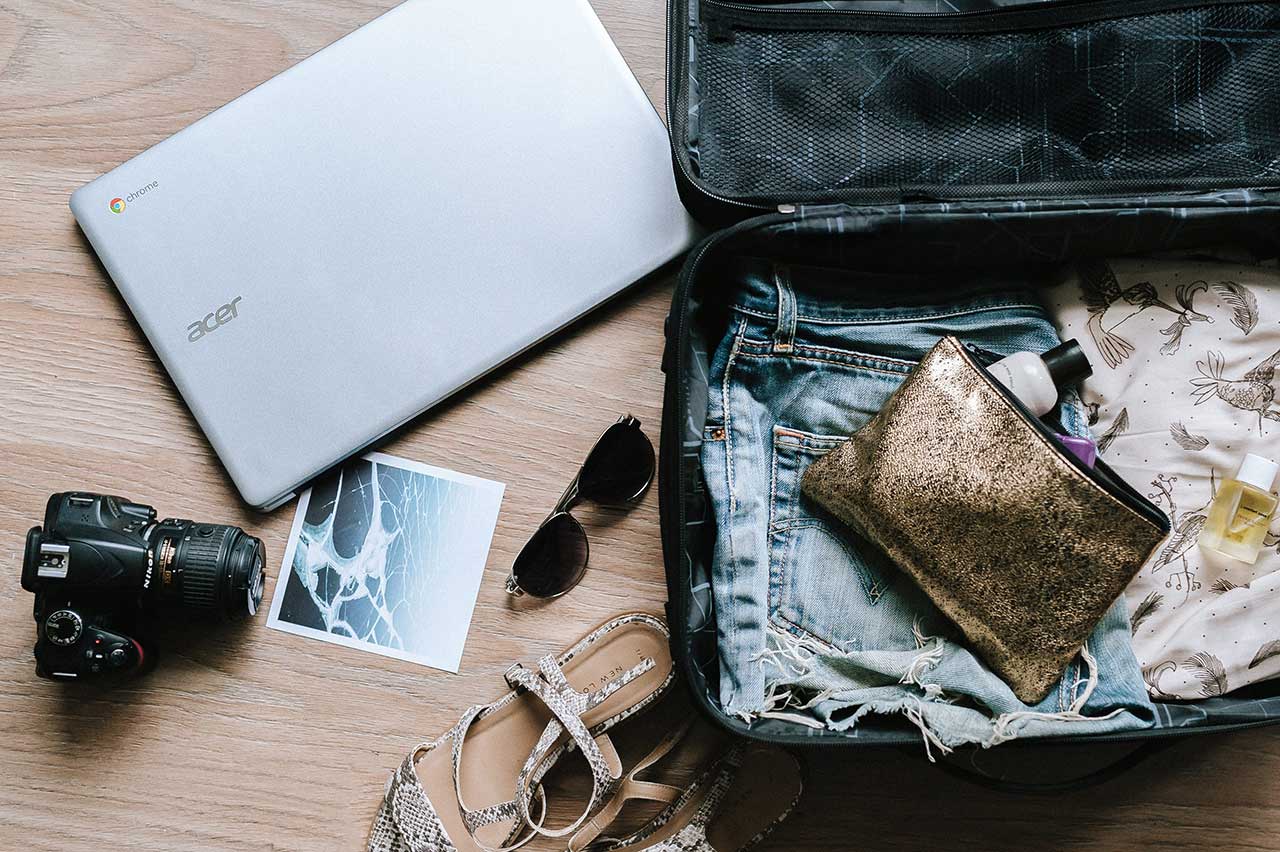
Photo by Anete Lūsiņa on Unsplash
Khalifa and Marriott’s unique approach tells us that, more and more, IoT affords hotels the opportunity to cater to multiple profiles or types of travellers.
This means that even those individuals who may usually opt to stay at an Airbnb can look forward to a more ‘casual’, ‘local’ or ‘informal’ stay experience because they can control the room according to their preferences.
What’s even better is that, with enough of an accumulation of this data, Marriott’s IoT initiative can then begin to leverage guest profiles for further beneficial offers, to craft unique, hotel-driven experiences, and to hook up these travellers with loyalty programs, booking incentives, rewards, likes, dislikes, preferences on dietary needs and more.
Challenges to these opportunities
There are a couple of challenges that IoT presents, especially in these examples.
First off, IoT-connected rooms will need to follow a baseline of operation and support. And this can get tricky when hotels are all testing and operating on their own platforms or in partnerships with various management systems and apps.
Users will eventually come to expect a baseline — such as digital keys for role-based access or automated guest check-in processes. If there are voice-activated user interfaces, for example, in just a few hotels, then guests will come to expect that as a standard.
If hotels don’t have that developed, they stand to seriously mar their customer’s experience by several points.
At Hilton, for example, an entirely ‘mobile-centric hotel room’ still relies on Hilton’s development of its own apps and platforms, which are then hooked into its reward program.
![]() Photo by rawpixel on Unsplash
Photo by rawpixel on Unsplash
But on the customer side, managing multiple and separate apps for different hotel brands can get tricky at best and tedious at worst. They might end up entirely avoiding the whole affair if the user experience can’t be streamlined and converged.
Spokesperson for Hilton, Julia Burge addresses this head on, saying that, ‘At this point, we don’t have a voice technology component,’ while also implying that development could be in the works if the need was justified.
We’ve already seen what the second potential challenge could be: Khalifa and Marriott pointed to it in their choice of Samsung.
While the goal of the device producer is to ‘map all 20 billion connected devices to this cloud by the year 2020…’ which means that ‘you can bring in devices that never really talked to each other before’, hotels are not quite at the point of brand agnosticism.
This means that even if hotels all align their IoT experiences, there is still the issue of whether to have in-house devices or allow guests to use their own.
The sheer variety of devices — often brands that are competing — make convergence and alignment tricky. Apple, Google, Amazon, Samsung — can these ecosystems branch out and connect with each other?
The Advantages IoT Presents For the Hospitality Industry
These are just a few of the examples of IoT already in operation within the hotel industry.
From hotels like Mariott, Hilton and Orchid Hotel, to the providers of hotel management software like INTEREL, to the actual producer and provider of devices like Samsung, almost all players are necessarily connected when it comes to setting up and harnessing the power of IoT infrastructure.
From these examples, instances and uses we can take away a couple of key advantages that IoT holds for the hospitality industry’s present and future.
Optimising processes and promoting productivity
For hotels, implementing IoT necessarily boosts productivity.
It’s not just about freeing up time and resources when you can control and streamline certain aspects like energy consumption or empower guests to take care of their own check-in.
It’s also about pivoting staff so that they’re focused on more important things that only humans can do such as decision-making, guest interaction and troubleshooting.
Processes like ERP and CRM can be integrated in a faster and more efficient manner, allowing hotels to manage inventory, control invoices and billings and perform other key business operations with speed and granularity.
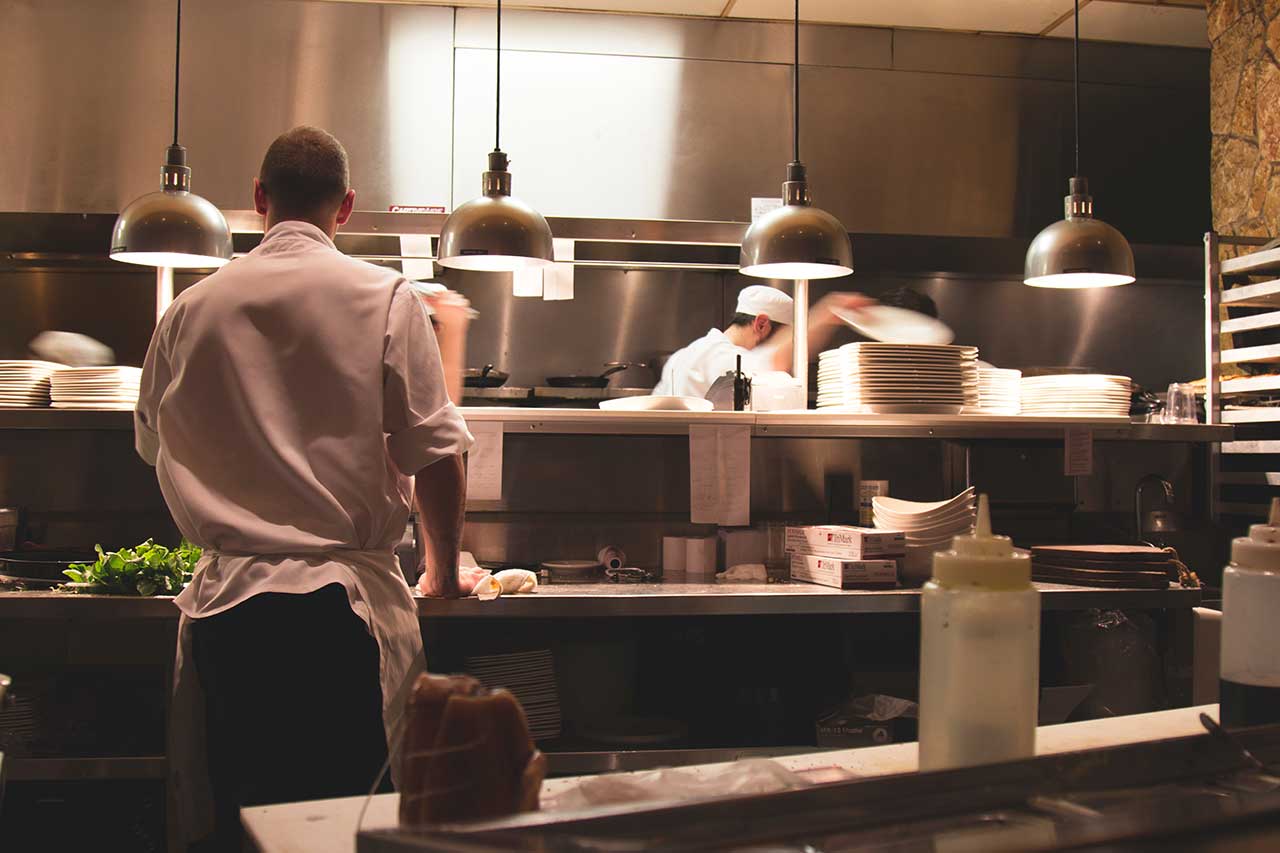 Photo by Michael Browning on Unsplash
Photo by Michael Browning on Unsplash
Tracking information about guest preferences, behaviours and habits
As we saw from Khalifa and Marriott’s own initiative, the data that IoT devices stand to collect, through a guest’s interactions with the network, allow massive amounts of information to be gleaned, collected and analysed.
It won’t be long, in fact, until there is enough data to then start to bring in predictive analytics, truly anticipating a guest’s needs, based on similar behaviour, micro ‘decisions’, past purchases and more.
This can then be integrated into business functions as diverse as marketing initiatives and sales to supply chain and inventory management, as well as quality control of perishable products, room cleanliness, rating management systems and more.
The technology is here, the hardware is primed and the software is being developed. All that is left is for hotels to seize the opportunity that IoT presents. It’s time for the hospitality industry to get connected in a whole new way — not just to their guests but, rather, to each other, as brands and companies.

